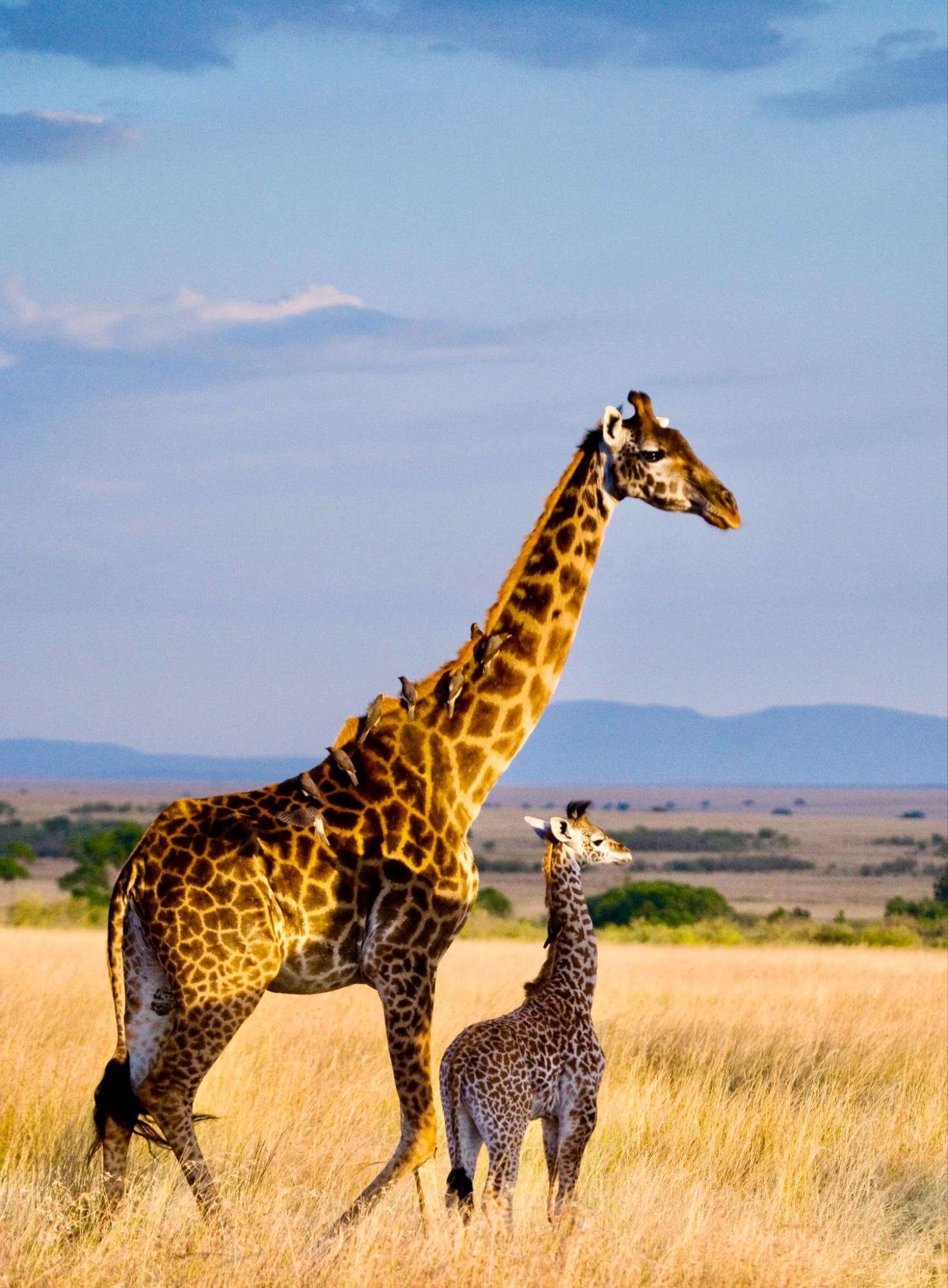Zimbabwe KAZA UNIVISA On Arrival
Imagine this: You're standing in awe before the breathtaking Victoria Falls, then hopping between stunning landscapes in the KAZA Conservation Area, all while soaking up the unique cultures of several Southern African countries. And the best part? You only need one visa for it all. Sounds too good to be true, right?
Well, it’s not! It’s all possible with the KAZA UNIVISA. This game-changing visa is your ticket to an unforgettable adventure, and in this guide, we’re going to break down everything you need to know about grabbing your Zimbabwe KAZA UNIVISA when you land. Let’s dive in!
Kaza Visa
The KAZA UNIVISA is a pilot project between Zambia and Zimbabwe that offers a unique travel document allowing tourists to easily explore the Kavango Zambezi Transfrontier Conservation Area (KAZA TFCA).
This conservation area spans five southern African countries: Angola, Botswana, Namibia, Zambia, and Zimbabwe. The UNIVISA facilitates tourism and conservation efforts in the region by simplifying travel between Zimbabwe and Zambia, with the added bonus of permitting day trips into Botswana.
The KAZA UNIVISA was initially launched on November 28, 2014, with a trial period of six months, which was later extended for another six months. On December 21, 2016, Zambia and Zimbabwe officially launched the permanent KAZA UNIVISA in Livingstone, Zambia. The Ministers of Home Affairs from both countries signed a Memorandum of Understanding to mark the commencement of the permanent issuance of the KAZA UNIVISA. The long-term goal is to incorporate the other three partner countries (Angola, Botswana, and Namibia) into this initiative to promote regional tourism and economic development further.

Countries Eligible for KAZA UNIVISA on Arrival in Zimbabwe
Nationals of the following countries are eligible for the KAZA UNIVISA on arrival in Zimbabwe:
- Albania
- Algeria
- Andorra
- Argentina
- Armenia
- Australia
- Austria
- Azerbaijan
- Bahrain
- Belarus
- Belgium
- Bermuda
- Bhutan
- Bosnia and Herzegovina
- Brazil
- Brunei Darussalam
- Bulgaria
- Burundi
- Canada
- Cape Verde
- Chile
- China
- Commonwealth of Dominica
- Comoros
- Cook Islands
- Costa Rica
- Croatia
- Cuba
- Czech Republic
- Denmark
- Dominican Republic
- Ecuador
- Egypt
- El Salvador
- Equatorial Guinea
- Estonia
- Ethiopia
- Finland
- France
- French Guiana
- French Polynesia
- French W/Indies
- Georgia
- Germany
- Gibraltar
- Greece
- Guam
- Guatemala
- Guyana
- Haiti
- Honduras
- Hungary
- Iceland
- India
- Indonesia
- Iran, Islamic Republic of
- Ireland
- Israel
- Italy
- Japan
- Kazakhstan
- Korea (South)
- Kuwait
- Kyrgyzstan
- Latvia
- Liechtenstein
- Lithuania
- Luxembourg
- Macao Special Administrative Region of China
- Marshall Islands
- Mexico
- Micronesia, Federated States of
- Moldova
- Monaco
- Netherlands
- New Caledonia
- New Zealand
- Nicaragua
- Norfolk Islands
- Northern Mariana Islands
- Norway
- Palau Island
- Palestine
- Panama
- Papua New Guinea
- Paraguay
- Peru
- Poland
- Portugal
- Puerto Rico
- Reunion
- Romania
- Russian Federation
- Rwanda
- San Marino
- Sao Tome and Principe
- Samoa (America)
- Senegal
- Serbia
- Slovakia
- Slovenia
- Spain
- Suriname
- Sweden
- Switzerland
- Tajikistan
- The Former Yugoslav Republic of Macedonia
- Turkey
- Turkmenistan
- Ukraine
- United Arab Emirates
- United Kingdom of Great Britain and Northern Ireland
- United States of America
- Uruguay
- Uzbekistan
- Vatican
- Venezuela (Bolivarian Republic of)
- Virgin Islands
How to Apply for a Zimbabwe KAZA UNIVISA On Arrival
Getting your KAZA UNIVISA when you arrive in Zimbabwe is pretty straightforward. Here's what you need to do:
- Head to the Immigration Counter: Once you land at the airport or reach the border post, make your way to the immigration counter.
- Fill Out the Immigration Form: You'll be given an "Immigration Declaration Form" that you'll need to complete.
- Pay the Visa Fee: You’ll need to pay the visa fee in cash. Make sure to have the exact amount on hand to avoid delays.
Apply for a Visa On Arrival Online: The Easy Way
If you'd rather skip the lines and make things easier, you can apply for your KAZA UNIVISA online before you even leave for Zimbabwe. This is often the quickest and simplest way to get your visa.
Here’s how it works:
- Register Online: Go to the Official Zimbabwe immigration site and create an account.
- Enter Your Travel Info: Provide details like your passport number and travel itinerary.
- Submit Your Application: After filling in the form, just hit submit.
- Pay the Fee: You can pay online using a credit card, debit card, or PayPal. Alternatively, you can choose to pay once you get there.
- Get Approved: Once your visa is approved, you’ll receive a confirmation email with all the details.
Visa On Arrival vs. Online Visa On Arrival Declaration
So, which one is better? Let’s break it down:
- Visa On Arrival (Traditional Way): This option means you handle everything when you arrive. You’ll fill out the form and pay the fee at the immigration counter.
- Online Visa On Arrival Declaration (Pre-Approved): With this option, you apply and pay online before your trip. This saves you time at the airport and gives you the peace of mind knowing your visa is already sorted.
Both options work, but the online visa offers more convenience and pre-approval, while the traditional visa gives you the flexibility to sort things out when you arrive.
Whether you choose to apply online or sort it out when you land, getting your KAZA UNIVISA for Zimbabwe doesn’t have to be complicated. Just pick the method that works best for you!
Fees for KAZA UNIVISA on Arrival in Zimbabwe
The KAZA UNIVISA on arrival in Zimbabwe costs US$65.00 (Single Entry – 1 month). This represents a cost saving compared to obtaining separate visas for Zimbabwe and Zambia. It's advisable to have the fee ready in US dollars to avoid any inconvenience due to currency exchange or lack of card payment facilities.
Validity Period of KAZA UNIVISA on Arrival
The KAZA UNIVISA is valid for 30 days from the date of issue, allowing for multiple entries into both Zimbabwe and Zambia as long as you remain within these two countries during the validity period. This 30-day validity applies to any given 12-month period, not just a calendar year.
Day trips to Botswana through the Kazungula border are also permitted without affecting the visa's validity. This allows travellers to experience more destinations with one visa. However, if you plan to stay overnight in Botswana, you will need to obtain a new visa to re-enter Zimbabwe or Zambia.
Experiences of Travelers with the KAZA UNIVISA
Many travellers have reported positive experiences with the KAZA UNIVISA, praising its convenience and efficiency. It has made regional travel much easier and more accessible.

Important Notes
- Arms Embargo: There exists an arms embargo against Zimbabwe. It is an offence to take firearms into Zimbabwe, even if you plan to bring them back to your home country.
- Gemstones: Do not carry any precious or semi-precious stones without the correct paperwork.
Common Mistakes to Avoid When Applying for the KAZA UNIVISA
- Travelling with an expired passport.
- Not having sufficient funds.
- Failing to check the eligibility requirements.
- Providing false or misleading information.
Where to Apply (Port of Entry)
Zimbabwe KAZA UNIVISA-on-arrival applications are processed at designated entry points, primarily international airports and land borders. Major entry points include:
|
Beitbridge Border Post |
Masvingo Airport |
|
Binga Border Post |
Mount Selinda Border Post |
|
Buffalo Range International Airport |
Mpoengs Border Post |
|
Cashel Border Post |
Mukumbura Border Post |
|
Charles Prince Airport |
Mulambaphele Border Post |
|
Chirundu Border Post |
Nyamapanda Border Post |
|
Forbes Border Post |
Pandamatenga Zimbabwe |
|
Joshua Mqabuko Nkomo International Airport |
Plumtree Border Post |
|
Kanyemba Border Post |
Robert Gabriel Mugabe International Airport |
|
Kariba Airport |
Sango Border Post |
|
Kariba Border Post |
Victoria Falls Border Post |
|
Kazungula Border Post |
Victoria Falls International Airport |
|
Maitengwe Border Post |
Conclusion
The Zimbabwe KAZA UNIVISA on arrival is a game-changer for travellers seeking to explore the beauty and diversity of the KAZA region. It offers a seamless and cost-effective way to experience the wonders of Zimbabwe and Zambia. So, pack your bags, grab your passport, and get ready for an unforgettable adventure!
Frequently Asked Questions
The KAZA UNIVISA is fantastic for day trips into Botswana via the Kazungula border, allowing you to experience a taste of another country without needing a separate visa. Think of it as a bonus! However, if you're planning to stay overnight in Botswana, you'll need to get a separate Botswana visa. The KAZA UNIVISA is specifically designed for Zimbabwe and Zambia, and while it facilitates day excursions to Botswana, it doesn't cover overnight stays.
Yes, you can absolutely get the KAZA UNIVISA at land border crossings! It's not limited to airports. Just make sure you arrive at an official border post that handles visa issuance. Be prepared for potentially longer processing times at land borders compared to airports, so factor that into your travel schedule.
The US$65 is the official visa fee, but it's always wise to have a little buffer. While most border posts accept card payments, sometimes the systems might be down, or they might prefer cash. We'd recommend carrying the US$65 in cash (crisp, new bills are always preferred) just in case. Also, be aware of unofficial money changers at the border – their exchange rates are often not favourable. If you need local currency, it’s usually better to exchange a small amount at a reputable bank or ATM once you're in Zimbabwe or Zambia.
If your KAZA UNIVISA is about to expire and you need to stay longer, it's crucial to contact the immigration authorities in either Zimbabwe or Zambia before your visa expires. They can advise you on the process for extending your stay, which usually involves an application and potentially additional fees. Don't overstay your visa, as this can lead to fines and complications with future travel. It's always better to be proactive and sort things out ahead of time.
Content Disclaimer: While this information was accurate as of January 2025, it's crucial to confirm with the relevant authorities, such as embassies, airlines, and agencies, to guarantee the latest details for your specific travel arrangements.

To help us improve